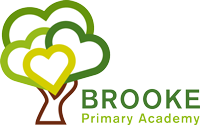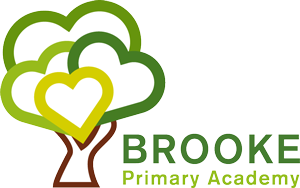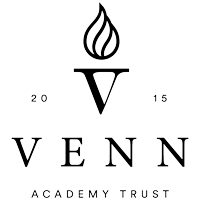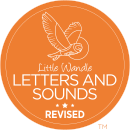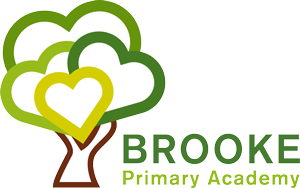
A Venn Academy Trust School
– Together we will…
Venn is a pioneering academy trust, committed to building educational environments where all pupils are inspired to become lifelong learners who achieve the very highest standards possible.
Collaborating with all partners, the Trust works with its unique settings to create world class learning experiences for all.

Phonics
At Brooke Primary Academy the validated phonics scheme that we follow is ‘Little Wandle Letters and Sounds Revised’. This is a systematic, synthetic phonics programme that was validated by the Department for Education in July 2021. All members of teaching and teaching support staff have completed training modules provided by Little Wandle to ensure a whole school understanding of the approach. As a result, the programme is followed with consistency across the school.
Phonics is a way of teaching pupils to read quickly and skilfully. It is essential that our approach to teaching phonics and reading is accessible to all pupils, regardless of background.
They are taught how to:
- recognise the sounds that each individual letter represents;
- identify the sounds that different combinations of letters make – such as ‘sh’ or ‘oo’; and
- blend these sounds together from left to right to make a word.
Pupils can then use this knowledge to ‘de-code’ new words that they hear or see. This is the first important step in learning to read.
We teach phonics daily in the Reception and Year 1. Phonics is taught from the first day in recaption. By following Little Wandle Letters and Sounds Revised we are able to ensure our pupils build on their growing knowledge of the alphabetic code, mastering phonics to read and spell as they move through school.
As part of this approach we use Collins Big Cat for Little Wandle Letters and Sounds Revised phonically decodable books that have been specially designed to match the teaching and learning of the phonics programme. These books are carefully and precisely matched to the child’s secure phonic level to ensure a reading fluency level. This automaticity allows the child to then focus on what they are reading and their understanding of what they have read. These books are read in school three times before they are shared at home with parents and carers.
Any pupil who needs additional practice has daily keep-up support, taught by a fully trained adult. Keep-up sessions match the structure of class teaching, and use the same procedures and resources, but in smaller steps with more repetition, so that every pupil secures their learning.
We timetable daily phonics lessons for pupils in Year 2 who are not fully fluent in reading, have gaps in their phonic knowledge or have not passed the Phonics Screening Check (taken at the end of Year 1). These pupils urgently need to catch up, so the gap between themselves and their peers does not widen. We use the Little Wandle Letters and Sounds Revised assessments to identify the gaps in their phonic knowledge and teach to these. If any pupil in Year 3 to 6 has gaps in their phonic knowledge when reading, we plan phonics ‘catch-up’ lessons to address specific reading gaps. These short, sharp lessons last 10 minutes and take place at least three times a week.
Further information and resources
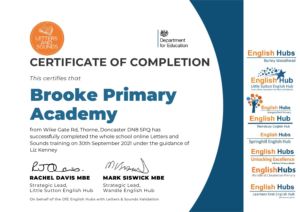
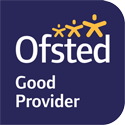
Early Years Provision: The early years setting promotes positive relationships and collaboration among children. Adults model effective communication and use assessment well to engage children in their learning.

Extracurricular Activities: There is a wide range of clubs available, such as football, rugby, forest school, and choir, which help develop pupils’ talents and interests.

School Environment: The academy is described as a warm and welcoming place where pupils feel safe and happy. Respectful and positive relationships are central to the school’s environment.

High Expectations and Progress: The school sets high expectations for all pupils, which are being met. Parents appreciate the support and information provided by the staff and are pleased with the progress their children make.

Support for SEND: The school effectively identifies and supports pupils with special educational needs and/or disabilities (SEND), involving parents in the assessment process and adapting lessons to help these pupils build new knowledge.

Positive Behaviour: Changes in how behaviour is managed have helped pupils reflect on their feelings and make better choices. This has resulted in positive behaviour during lessons and playtimes.

Promotion of Values: Pupils learn about diversity and British values through various activities and demonstrate positive attitudes and respect for others. The school also encourages community involvement, such as the choir singing in residential homes and helping at the local food bank.

Governance and Leadership: Trustees and governors are skilled and committed, regularly visiting the school and maintaining an accurate picture of its operations to ensure continued improvement.

Safeguarding: The school has effective safeguarding arrangements, creating an open and positive culture that prioritises pupils’ interests.

Curriculum and Learning: The curriculum is well-considered, building on previous learning to deepen understanding. While assessment systems need improvement, the school’s overall approach helps in identifying and supporting pupils’ needs.

Reading and Phonics: The school is committed to ensuring all pupils learn to read. Effective training and support for teachers, along with appropriate reading materials and catch-up sessions, help pupils read accurately and confidently.

Overall Effectiveness: The school is rated “Good” in all categories, including quality of education, behaviour and attitudes, personal development, leadership and management, and early years provision.

Anti-Bullying: Pupils respect each other, believe in the school’s values, and feel confident that any issues, including bullying, would be resolved quickly by adults.
